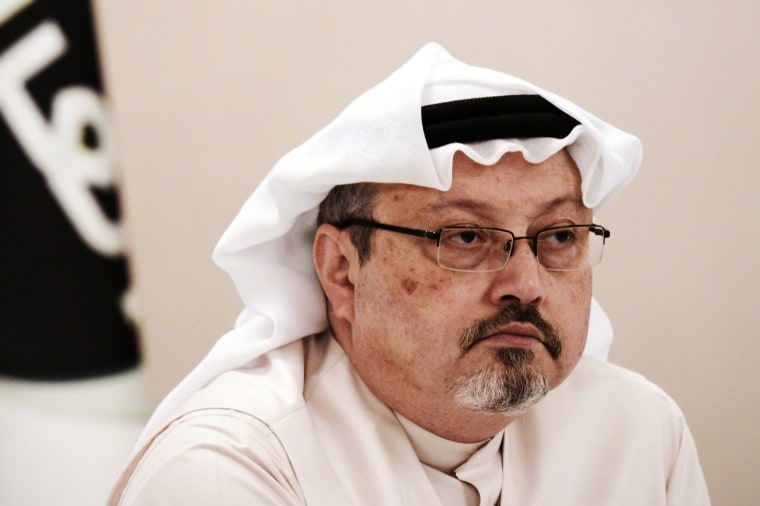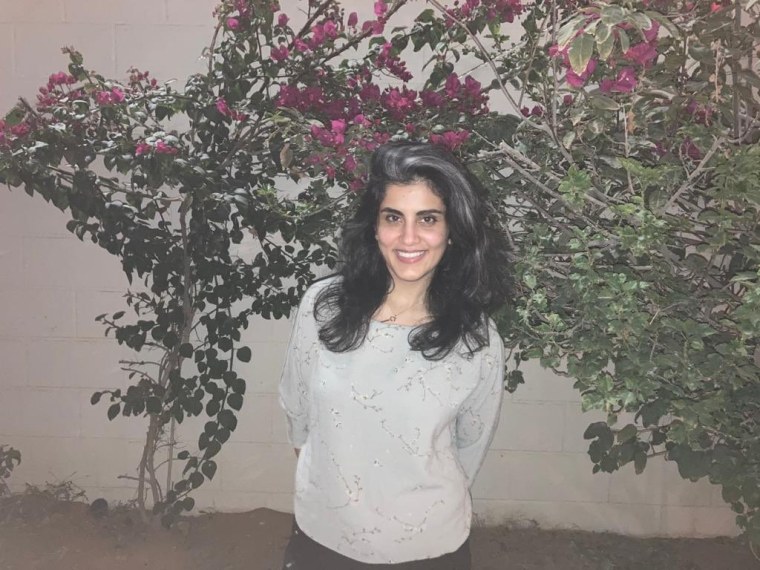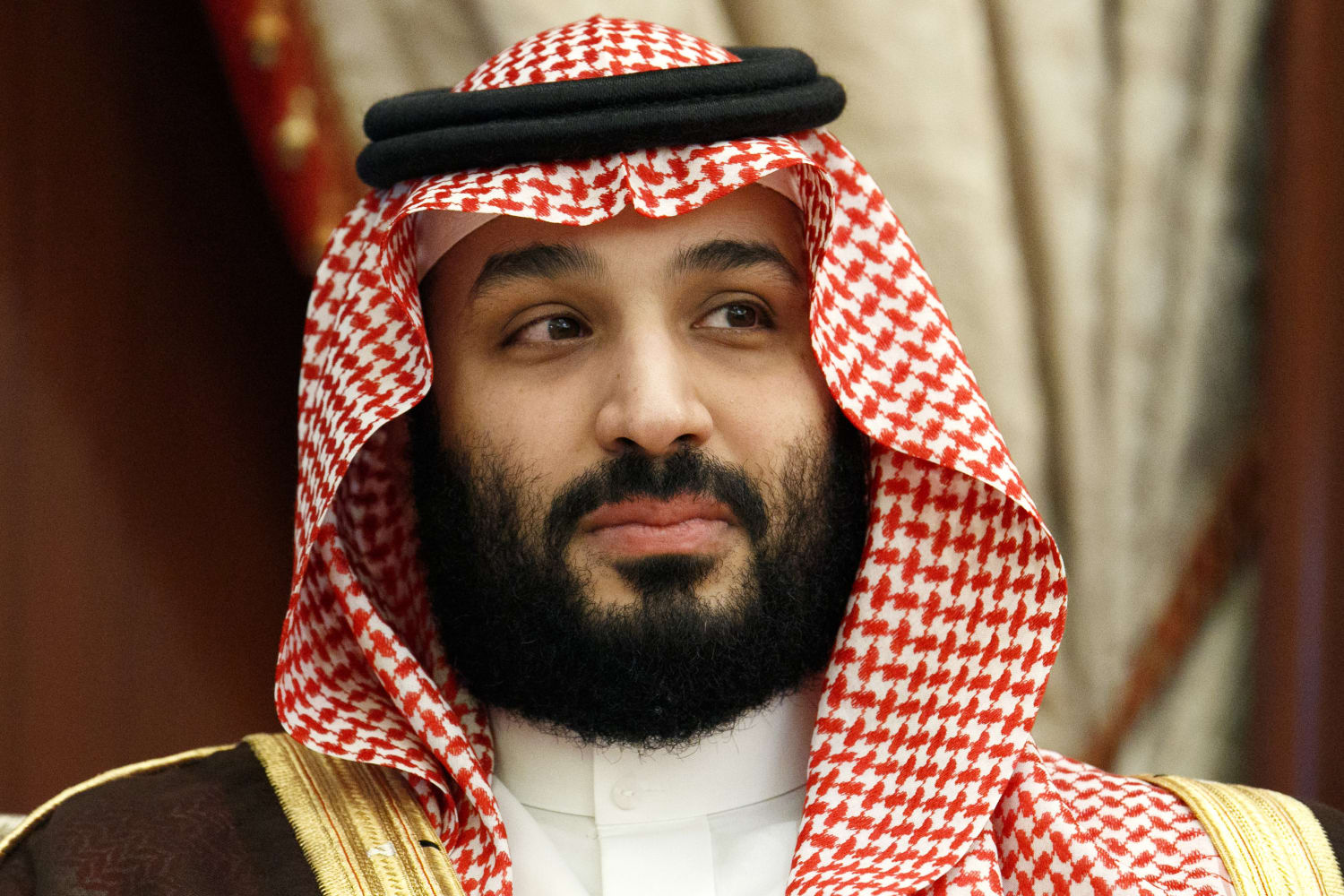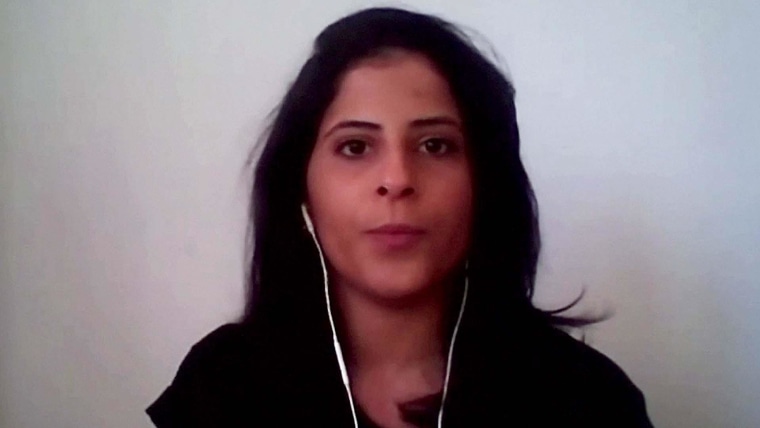As President Joe Biden defended his plans to visit Saudi Arabia, a country he once vowed to make an international “pariah,” Saudis who have fought to reform the absolute monarchy called the trip a betrayal that could have devastating consequences.
“We feel betrayed,” Abdullah Alaoudh, a U.S.-based leader of the National Assembly Party, an opposition group, told NBC News in a phone interview Monday. “We were promised to be protected from MBS,” he said, referring to Saudi Crown Prince Mohammed bin Salman.
With Biden expected to meet the crown prince, Alaoudh said he feared the president’s visit could embolden Saudi Arabia’s de facto leader to “be more brutal and rogue.” Bin Salman has led a crackdown on reformers and women’s rights activists and the CIA has said likely ordered the brutal killing of Washington Post columnist Jamal Khashoggi.
Bin Salman has said he takes full responsibility for Khashoggi’s murder, but denies any involvement in the slaying of the journalist — an outspoken critic of the crown prince.
Regional powerbroker Saudi Arabia, one of the largest oil producers in the world and the home of Islam’s two holiest sites, has been a vital American ally. And before Khashoggi’s killing in the Saudi consulate in Istanbul, the crown prince had launched an effort to modernize the deeply conservative kingdom economically and socially. Reforms mean women are now allowed to drive and movie theaters have opened for the first time in 35 years.

He has also embarked on an ambitious international campaign to rebrand the kingdom, courting politicians, business leaders, sports tournaments and players, social media influencers and journalists from around the world.
The crown prince’s bid to present himself as a reformer was truly shattered with the October 2018 slaying and dismembering of Khashoggi, but even before the assassination, Saudi Arabia was carrying out public beheadings and jailing activists. And thousands of civilians have died in the war in neighboring Yemen where Saudi-led forces are battling Iran-backed Houthi rebels.
“I don’t have much hope of the U.S. helping us with human rights.”
Ali Adubisi said
Given the crown prince’s tarnished reputation in the wake of Khashoggi’s death, what the royal now wants most from the United States “is recognition and legitimacy,” said Alaoudh, who is also the Gulf director of Democracy for the Arab World Now, or Dawn, a nonprofit organization founded by Khashoggi promoting human rights in the Middle East.
And Biden’s trip could effectively help the powerful crown prince “get away with murder,” he said.
Oil crisis
In an op-ed published by The Washington Post titled “Why I’m going to Saudi Arabia,” Biden defended the planned visit, even as he acknowledged that “there are many who disagree with my decision” to travel to the kingdom.
“A more secure and integrated Middle East benefits Americans in many ways,” he wrote. “Its waterways are essential to global trade and the supply chains we rely on. Its energy resources are vital for mitigating the impact on global supplies of Russia’s war in Ukraine.”
The U.S. is among many Western countries that want the Gulf states to increase oil production, something they hope will ameliorate the politically damaging energy crisis and weaken Russia’s stronghold in that market.
Saudi Arabia is key to these efforts, although Biden has previously said he will not specifically ask the country to increase production during this trip.

In his op-ed, Biden said that Saudi Arabia has “helped to restore unity among the six countries of Gulf Cooperation Council, has fully supported the truce in Yemen and is now working with my experts to help stabilize oil markets.”
“My aim was to reorient — but not rupture — relations with a country that’s been a strategic partner for 80 years,” he said.
But while oil will undoubtedly be a major focus of the trip, Biden said: “My views on human rights are clear and long-standing, and fundamental freedoms are always on the agenda when I travel abroad, as they will be during this trip, just as they will be in Israel and the West Bank.”
Alaoudh said he hoped that was true. However, he said, he feared that Biden’s trip would undo any progress made on pressuring Saudi Arabia to make reforms.
He also noted that the president’s op-ed struck a far different tone from comments Biden made in the lead-up to the 2020 election, when he vowed to treat Saudi Arabia as a “pariah” state in the wake of Khashoggi’s killing.
‘A big win for MBS’
Lina al-Hathloul, whose sister — women’s rights activist Loujain al-Hathloul — remains under a travel ban after she was imprisoned in Saudi Arabia before being released last year, said that regardless of Biden’s intentions, his visit would be perceived as a major victory for the crown prince.
“It’s not about the intention President Biden has when he goes in there and meets MBS,” she said, speaking at a press conference Monday calling on Biden to push for the release of political prisoners during his visit to the kingdom. “It’s about what the consequences will be once he goes there and (is) in the same room as MBS — what the regime will make of that visit. It will be perceived as a big win for MBS.”
Loujain al-Hathloul’s family and others had hoped for more support from Biden, who publicly confirmed and welcomed the news of her release from prison in February 2021.
The prominent activist was arrested in May 2018 along with several other female activists, after making a name for herself as one of the few women to openly call for women’s right to drive. She also called for an end to Saudi Arabia’s restrictive male guardianship system that had long limited women’s freedom of movement.
Ali Adubisi, director of the European Saudi Organization for Human Rights, also said that Biden’s visit would “send MBS a message, that no matter what he is doing inside Saudi Arabia, and abroad in places such as Yemen, he won’t be isolated or pressured by the international community.”
“This visit is for Biden and his government’s interests, for their political goals in Saudi Arabia and the region in general,” he said in a phone interview Tuesday.
“I don’t have much hope of the U.S. helping us with human rights,” Adubisi said, however. “Because historically, it has been responsible for empowering the Saudi government since it was founded, sending weapons, and protecting it in difficult situations.”
“The U.S. will help Saudi Arabia in any situation, and that’s why Saudi Arabia doesn’t care about human rights, because it knows the U.S. will protect it,” he said.
Source: | This article originally belongs to Nbcnews.com











